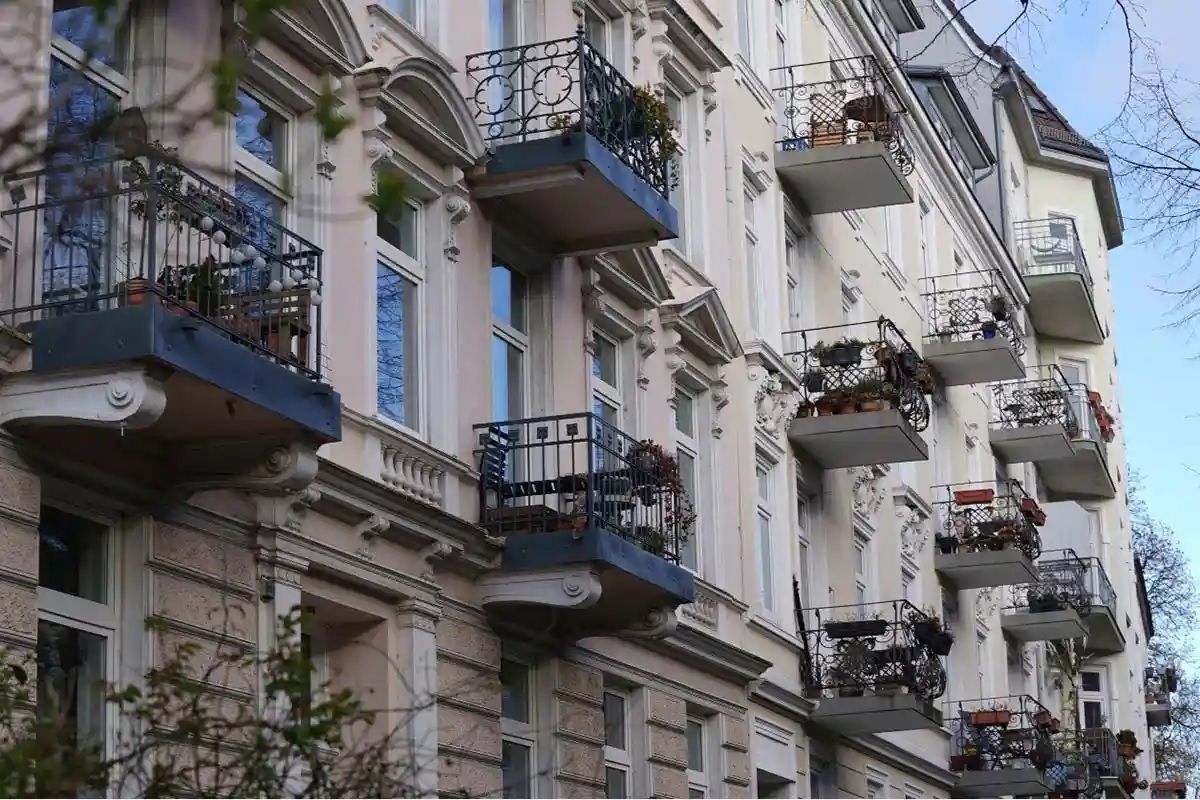How will the real estate market in Germany look in 2024? As early as 2021, Deutsche Bank predicted that the boom in the German real estate market would come to an end in the near future, specifying the year 2024 as the endpoint. After the halfway mark of the pandemic and the energy crisis, their forecast seems almost accurate.
Related topic: What will change in Germany in December 2023
The real estate market in Germany in 2024
With Germany teetering on the edge of transitioning from a technical recession to a real one in the fourth quarter, it appears logical that the housing market would follow suit.
The most significant downturn is currently unfolding in the construction sector. The Ifo Institute for Economic Research recently reported that in October, the number of canceled construction projects reached a new high: 22 percent of companies stated that they had to abandon project implementation.
"The situation continues to worsen, and more projects fail due to rising interest rates and the increasing cost of construction", says Klaus Wohlrabe, head of the Ifo research department.
ECB raised the key rate from zero to 4.5 percent
In response to the rapid inflation growth in the eurozone, the European Central Bank (ECB) raised its key interest rate from zero to 4.5 percent within a year.
These additional costs pose a heavy burden on the sector, as many previously profitable construction projects have become unviable. As the German government failed to meet its target of constructing 400,000 new homes in 2022 and 2023, it is the tenants who will bear the brunt of the crisis.
Unable to rent, and no time to buy
It is easy to imagine what happens when cities like Berlin fail to build an adequate number of new apartments, while the demand for affordable housing sharply rises. According to Wirtschaftswoche, over 99 percent of housing in the city is already occupied, leaving little room for maneuver.
In its real estate market report, the German Association of Real Estate Investment (DAVE), which brings together brokers, found that in the 25 cities it surveyed, the basic rent rose from five to 12 percent last year, mainly due to excess demand and lower-than-expected supply. And while there are no signs of weakening demand, rent may continue to rise.
On paper, the situation is different with housing prices. After peaking in 2022, they fell by more than ten percent. For 2024, a group of 14 experts regularly surveyed by Reuters forecasts a further average decline of 2.8 percent, following an overall 8 percent drop in 2023.
The main culprit again is the ECB's interest rate hike, which marks the end of the era of cheap mortgages.
"The new economic conditions will make it impossible for an increasing number of people to buy real estate," says ING Chief Economist Carsten Brzeski. Analyst Sebastian Schneider of BayernLB explains the consequences: "The rise in interest rates has pushed about half of all potential buyers out of the real estate market."
This corresponds to DAVE's data, according to which property sales in Germany in the first half of 2023 halved, reaching just under 15 billion euros - the lowest level since 2012. Schneider adds that constant expenses for heating, electricity, and municipal fees have significantly increased, leading to higher costs for homeowners.
Gloomy prospects, but not all are doomed
Although there are few signs that the situation in the real estate sector or in the German economy as a whole will improve in the near future, not all analysts cast a long shadow on the coming year.
Both DAVE and the IVD, a real estate lobbying group, believe that the market's recovery is possible in 2024.
Guido Stracke, managing director of the DAVE brokerage network, believes the market is in a "consolidation phase," which will allow recovery to begin in early 2024 due to slowing inflation and normalization of construction material prices. However, considering that the Federal Statistical Office reported in October that in the first half of 2023, prices for almost all materials were significantly higher than the pre-crisis level, such an optimistic forecast seems doubtful.
IVD also believes that the real estate market in Germany will recover over time but not before the fourth quarter of next year. "Overall, the actual developments in the market and the prospects for the real estate market are better than the current investment climate," says IVD President Dirk Wohltorf.
Finally, the research institute Empirica does not expect the well-known real estate market bubble to burst in 2024. Instead, as explained by Rainer Braun, head of Empirica, the "lock-in effect" will take effect: tenants will refrain from signing new contracts with much higher rent, and rent for new tenants will rise at much higher rates, leading to an even worse distribution of the already scarce living space.
Related topics:
In the context of the economic challenges, the German government might need to revise its housing construction targets for 2024 due to the increasing costs and unviability of construction projects caused by high interest rates.
Amidst the worsening real estate market conditions, potential buyers may find it difficult to secure mortgages, resulting in a decrease in property sales in Germany.




